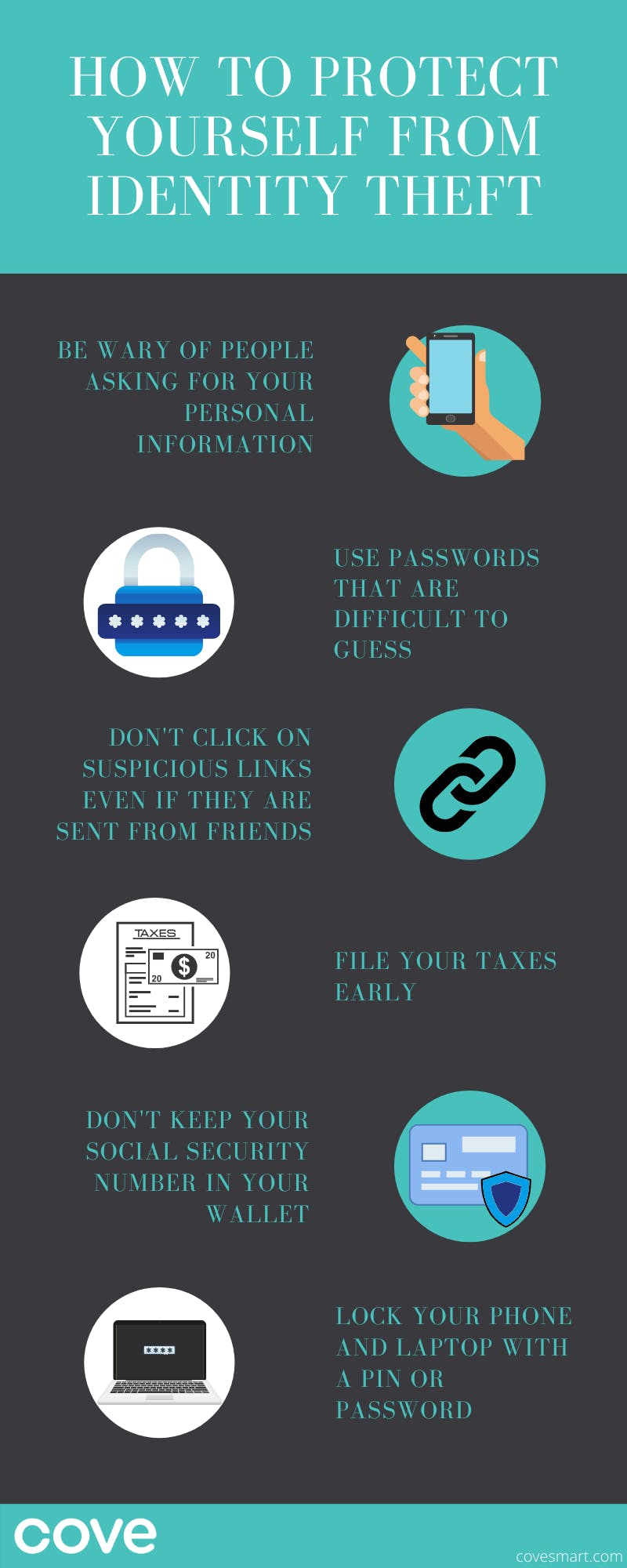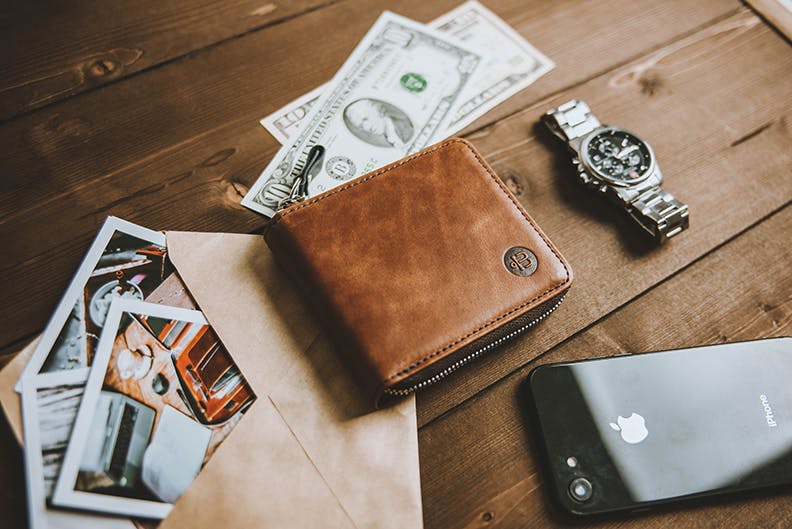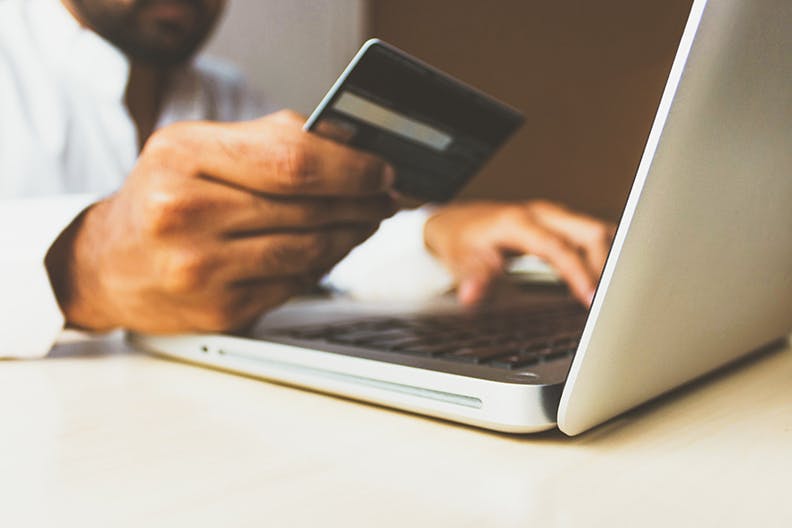
Imitation may be the sincerest form of flattery, but when it comes to your personal finances, someone pretending to be you to steal and sell your information is a serious crime. There are many types of theft including password theft, data breaches, and the capture of sensitive documents. In the end, however, it all comes down to money: identity fraud equates to about 1.6 billion dollars stolen every year from individuals, businesses, and credit card companies who end up footing the bill.
Unfortunately, the question is not if, but when. Not even the highest-quality identity theft protection agencies can prevent all forms of information appropriation and monetary loss. Such services can help, but no one is perfect, especially when it comes to buying things online, reusing passwords, revealing personal information by accident, or clicking on suspicious links. So what can you do to avoid identity theft from dramatically affecting your life? Here are some things to remember as you go about your daily business that will help you stay secure.

Signs of Identity Theft
Imagine one day you are perusing a billing statement from your bank, trying to figure out next month’s budget, when you see a charge for something you don’t remember paying for. It is a charge for a service, probably at a location you have never visited in your life. If you notice suspicious activity like this, it is typically a sign that your information was stolen and used to make a purchase under your name.
Another way you may find out is through a call from your credit card issuer. Visa and Mastercard may not prevent identity theft, but their automated systems are fairly strong, strong enough that if you travel to another country or across the United States, you will probably receive one of these calls yourself. Basically, this fraud alert will inform you that your card has been used in some location different than usual. Details can include the location of the charge, the size of the charge, or the repetition of the charge. All of this information is valuable if you should need to perform your own homework about any other types of false transactions.
The call will then ask you if you have made this purchase. If you have, nothing else needs to be done. If you have not, then your credit or debit card will be frozen (along with the fraudulent charge), and you will have to go to your financial institution to be issued a new one. You may also be contacted by one of several credit reporting agencies, such as Experian or Equifax stating that your credit report has been affected by an unauthorized change. So how does this happen? Since you certainly did not choose to offer someone else your credit card number, there must have been a source.
In truth, there are many such types of identity theft:

Physical Theft
The first is fairly straightforward: having your wallet or purse lost or stolen. There is no promise that someone generous will come along and return it to you. If the person that finds it is unscrupulous enough, they will use your credit and debit cards and purchase whatever they like until the card is frozen. Or it may not freeze at all. It is worse if you keep other documents inside, such as your social security card. You should never do this, and instead leave it somewhere in your home away from prying eyes. With your driver’s license and social security card (or sometimes with only one of the two), fraudulent bank accounts and loans can be taken out under your name. In order to make it more difficult for identity thieves to get access to your identifying documents and credit card numbers, consider installing a home security system.
Online Identity Theft
If you shop for anything on the internet, your credit card number will be logged into the vendor’s system. After the transaction, such personal information remains confidential but accessible (in case of returns, for example). The less honest online vendors will hide their store behind privacy policies and guarantees, even making their ‘legitimate’ websites look professional and trustworthy. Cybercriminals are a clever bunch, and they will make you think you have done something harmless. Financial information is a valuable commodity, and if they do not use it themselves, they will sell it to those who will.
Medical Identity Theft
A particularly malicious form of identity theft, medical theft is when someone steals your sensitive information in order to submit claims to medical insurers or Medicare without your permission. The reason this is so hurtful is due to the people often targeted for this theft: the elderly or disabled. As they also happen to be the most vulnerable to the tricks of scammers and thieves, this type of theft has become almost a quarter of all identity theft in the United States. Since legitimate medical claims can be so difficult to separate from false ones, even if they were not performed by you, it costs the average victim in the US $13,500 to resolve the situation. In this case, the best hope for getting out from under such claims is to file a police report and work with a lawyer to fix the problem as soon as possible.

Information Breaches
Information breaches are a large-scale form of identity theft. Investopia.com shares some of the largest private information thefts of the last decade, and they are gut-wrenching. The data breaches included very respectable business, including Capital One, Sears, and Home Depot. And it isn’t even your credit card identity thieves are stealing. Facebook, the social media app millions of people use every day, has had several breaches of personal information, with an untold amount being used for imitation. To give an example, you may receive an invite from a distant friend and click accept. This distant friend will then start a conversation with you through Facebook Messenger about a job or a personal tragedy, all in the hopes that you will send them money. Whenever you hear of a data breach with a company or service you use, always perform due diligence: reports of this nature usually come out fast, and securing your information on your end (such as reporting any false charges) will help protect you.
Bad Password Habits
Good computer habits are essential in today’s modern world, especially if you want to keep your information safe from those who would use it against your will. The safest way to keep every online account secure (including your bank, your email, your social media accounts, and other sites) is to use individual passwords for each. This may sound exhausting, but there are programs such as KeePass or StickyPassword that can autofill or remind you of individual passwords. If you worry about having your password remembering password stolen, just make one password for the program, and the program can do the rest!
Another way to protect yourself and your logins is to establish two-way authentication with online businesses that provide it. Whenever you type in your password to access your account, your authentication will send you an email, a call, or a text with a unique code that will identify you as the sole user. Two factor-authentication is very difficult to crack unless someone has access to your physical phone or your email. It goes without saying that these things should also be protected by passwords and PIN numbers (more on that down below)!
Finally, consider taking additional cybersecurity training as it will help you to become more tech-savvy and you will be able to recognize various possible cybersecurity threats
Don’t Be An Identity Theft Victim!
Identity thieves can be some of the craftiest kinds of criminals due to the sheer number of ways they can obtain your personal information without appearing malicious at all. As stated before, nearly everyone is a victim of identity theft at some time, even those who have experienced it before and know what to look out for. Here are some tales about the methods identity thieves have used in the past, and possibly what they plan to do in the future.
Tried-and-True Tax Theft
Having the money from your checking account or credit card stolen from under your nose is bad enough, but what if your entire tax return could be stolen without your knowledge? The Better Business Bureau is warning people to watch for warning signs before and after filing your taxes.
Shared by Tampa 5 News in Florida, ensuring your tax preparer is a licenced professional is the first thing you can do to ensure your SSN, or social security number, is not stolen. Working with proven businesses like H&R Block or Intuit TurboTax is a great way to protect your information. Second, if the IRS contacts you about information that is not correct, jobs you have not worked on being included on your return, or duplicate returns being filed for a particular year, respond promptly. The later you put off getting in contact with the IRS, the worse of a situation you’ll be put in, and you may be held liable for anything your identity thief may do with your return.
No one really wants to do their taxes every year. It may seem a waste of time, especially if you aren’t expecting a return. But with the right tools, your identity thief can get a return whether you are expecting one or not. Your thief may already have your social security number through other means and is waiting to get a jump on you and file before you do with your information. Filing your taxes early can stop these types of thieves before they even start.
Also, according to KSL 5 News in Utah, the IRS received almost 14,000 fraudulent tax returns and stopped 184 million dollars from going out to identity thieves. Many of these identity theft attempts come from overseas, meaning there isn’t much to be done if the money gets out of the country. The IRS has set up safeguards on their end to ensure all returns go to the right place. But if you believe you are a victim of tax return fraud, please visit the IRS identity theft website here.

Phishing Schemes Via Your Cell Phone
The word “phishing” comes from the same idea as “fishing”. Someone calls your mobile phone pretending to be your cell phone provider and says that you have an overdue bill and that your service will be terminated in a set time. This individual (or ‘scammer’, as they are usually called) will then ask you for your password to ‘reinstate’ your account. Pretty convincing, no? If you don’t think so, this type of theft (including the outright theft of your phone itself) accounts for ten percent of all identity theft in the U.S..
The best way to protect your devices and information from intrusion is to set a PIN or password so that every time you activate them, they will ask you to prove that you are the appropriate user. For better or worse, Apple has refused to budge on allowing access to locked phones. And while some can hack into specific types of phones to access information, a PIN still makes it incredibly difficult to break into and resell.
Lastly, when you change your phone for a different model, resist the urge to throw your phone into the garbage. If a thief gains access to your physical phone, they can reactivate it and regain service for the phone at your expense. Take your phone to your phone service and have them recycle it.
A New Account In Your Name
Accounting for a whopping 40% of all identity fraud reports, someone who has access to your personal information such as your social security number, your driver’s license number, or (heaven forbid) a copy of your birth certificate will try to open a loan or savings account in your name. Once a new account is open, the thief has free access to a line of credit under your name that now becomes your responsibility to pay. Reporting this kind of fraud can usually be fixed so you owe nothing, but it does allow the thief to get off scot-free with a lot of money.
Identity theft is recognized as a serious threat to public and private wealth. The Federal Trade Commission has established a website for identity theft recovery at IdentityTheft.gov. Once you discover a breach in your credit, you can create an account and file a report to let your credit bureaus know that something has happened that you did not authorize. This will place an alert on your account to watch for additional account openings and even stop debt collectors from knocking on your door demanding payment for money you did not spend.
Keep in mind that acting on a breach as soon as you spot it is vital. As stated by the FTC, you may be more and more liable for each theft the later you leave each matter unresolved. Most states protect you from all liability once it has been proven that the accounts were not opened legitimately, but federal law is a bit different. Once again, a little homework about your rights can go a long way to getting your identity theft solved quickly.

Keep In Constant Contact With Your Credit Bureau
Perhaps the most important tool you have at your disposal is credit monitoring. Basically, this means getting in contact with a credit reporting agency such as Experian, Equifax, and TransUnion. As the three largest bureaus, they are the most reliable companies that help you generate complete credit reports based on all of the credit taken out in your name. This includes student loans, auto loans, home mortgages, and credit cards. Generally, you can run a credit report for free once a year, and all three companies are connected in such a way that they can all be run at once. Websites such as CreditKarma.com can help you find these reports as often as they are required. These sites can also give you your overall credit score, which is a number between 300 and 850, 850 being the absolute best and 300 the absolute worst. Anything above a 700 is considered good; most people fall between 640 and 730.
When you run into something on your credit report that you believe is fraudulent, the report will give you information about where the fraudulent activity took place, the lender that made the inquiry into your credit, and other great information. You can then take appropriate action to shut down any further damage to your credit and your finances. With help from a credit reporting bureau, you can stay on top of all of your credit.
